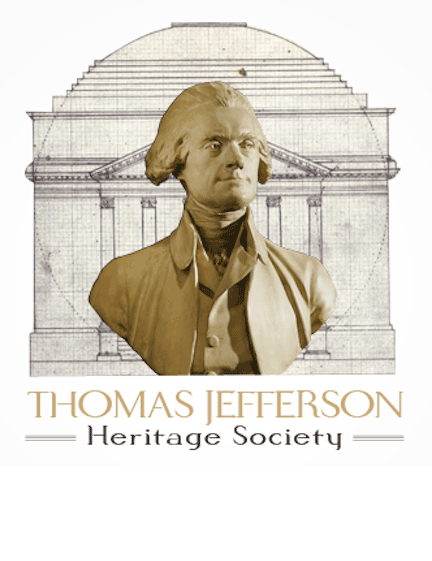Jefferson Family Feud Mixes History, Race, Sex: Andrew Ferguson
By Andrew Ferguson
Charlottesville, Virginia, May 6 (Bloomberg) -- ``This is a story about family,'' Michelle Cooley said. ``It's a story about coming together as a people and a country.''
Nat Abeles sees it differently.
``This story,'' he told me last week, ``is about how a single piece of yellow journalism can survive for two hundred years if it serves some people's interest.''
Whoever says Americans don't care about U.S. history should come to this leafy Shenandoah Valley town in early May, when the Monticello Association -- of which Abeles is president -- holds its annual meeting.
The association limits membership to lineal descendants of Thomas Jefferson and by deed controls the family graveyard at Monticello, the mountaintop home the third U.S. president built a few miles outside of town.
Cooley, for her part, is a descendent of Thomas Woodson, who, she says, was the son of Jefferson and his slave Sally Hemings. When Cooley's father died in 1998, she asked to bury him in the Monticello graveyard, where all Jefferson's lineal descendents are entitled to lie.
The association, dismissing talk of a Hemings-Jefferson liaison as an ancient canard, declined her request. This brought to a boil a controversy that had simmered for two centuries and continues today, in a roiling stew of racial grievance and sexual innuendo. History at its very best, in other words.
Taste for Slander
And it did indeed begin in yellow journalism, as Abeles says. In 1802, James Callender, a pamphleteer with a taste for slander, published the rumor that President Jefferson kept a slave as concubine -- ``dusky Sally,'' in Callender's frankly racist account -- and fathered several children with her.
Jefferson never denied the account outright, and the story was kept alive by abolitionists, radical Republicans and others with an interest in bringing his memory low.
After the Civil War, a Republican newspaper printed a memoir by Sally's son Madison, who fingered Jefferson as his father and recollected in great detail his own childhood at Monticello.
Biographers mostly ignored Madison's account, deeming Jefferson too honorable -- or at least too frigid -- a character to conduct such a skulking liaison. In 1973, historian Fawn Brodie revived the story in her Jefferson ``psychobiography,'' and though her book became an international bestseller, it made her a pariah in her profession.
Enough for Oprah
Professions, like reputations, change over time. In historical circles, old-fashioned Jefferson defenders have retired or died. They've been replaced by a more culturally diverse, though more politically uniform, set of historians who feel less obliged to defend traditional American icons.
Susan Stein, Monticello's curator, estimates that "more than 90 percent of professional historians who've looked at this are persuaded that Jefferson and Hemings had a sustained relationship."
Science provided the key evidence. Not long after Michelle Cooley made her request, Nature magazine published DNA findings that proved Sally's son Eston, born in 1808, was fathered by a Jefferson: Thomas, or Thomas's brother or one of his nephews.
That was enough for the Thomas Jefferson Foundation, which maintains Monticello, to quickly issue a report concurring with the Nature article. More important, it was enough for Oprah. The daytime chatmeister invited several Hemings descendents to appear on her syndicated television show with a Jefferson descendent sympathetic to their claim. He invited them all to the 1999 meeting of the Monticello Association. And they've been attending ever since.
Culture Clash
Since 1999, association members have greeted them with ever diminishing amounts of Southern hospitality. Last year the association voted conclusively that Hemings descendents were ineligible for membership, absent more precise evidence of Jefferson's paternity. This year other steps, such as barring outsiders from some of the weekend events, were taken to actively discourage Hemings descendents from attending.
This weekend, more than 20 Hemings cousins traveled to Charlottesville for the meeting anyway.
"I come because it's my family and I should be here,'' said Shay Banks-Young, a Hemings descendant from Columbus, Ohio. "Sally deserves representation.''
As it turned out, the association didn't enforce its threats to exclude the Hemings descendents from events, and those who came eager for fireworks left disappointed. Yet the culture clash survives, in ways both great and small.
Divided
"You notice how all the association members call him `Mr. Jefferson,' as though he were still alive,'' Banks-Young said. ``I call him `Grandpa Jefferson.' You should see them when I do that. They gasp and clutch their chest like they're about to have the big one.
``Maybe they think it's disrespectful. But he's my grandpa, too.''
The two families also are divided on what the controversy means. If the Hemings story is true, what does it say about Jefferson?
"It means that he was capable of sustaining a loving relationship for many years with a woman of color,'' Cooley told me. ``It makes him warm and human. And for America, it means a more inclusive picture of our history.''
This is not, to put it mildly, how the Monticello Association answers the question. Sal Pace, a Jefferson descendent from Colorado, joined the association in the late 1990s, just before the Hemings controversy boiled over. Now, with the favorable response the Hemings story has received in the press and the academy, he sees the association as the last defender of Jefferson's honor.
``Think of what this means,'' he said, as the meeting wound down Sunday afternoon. ``We're being asked to say that one of the greatest Americans in history, the man who wrote the Declaration of Independence, was essentially a rapist. Maybe that doesn't bother other people, but I'm sorry, I'm not prepared to say that.
'The people here, in the association, we joined because we love Jefferson. We joined because we love America.''

